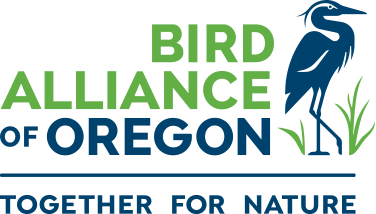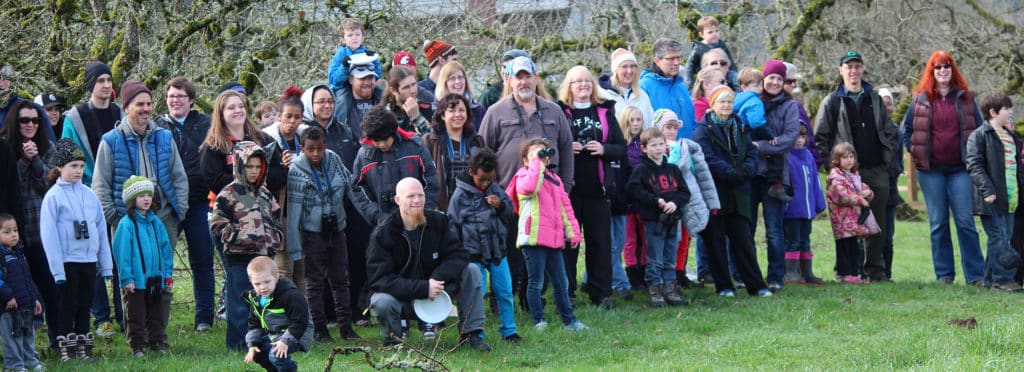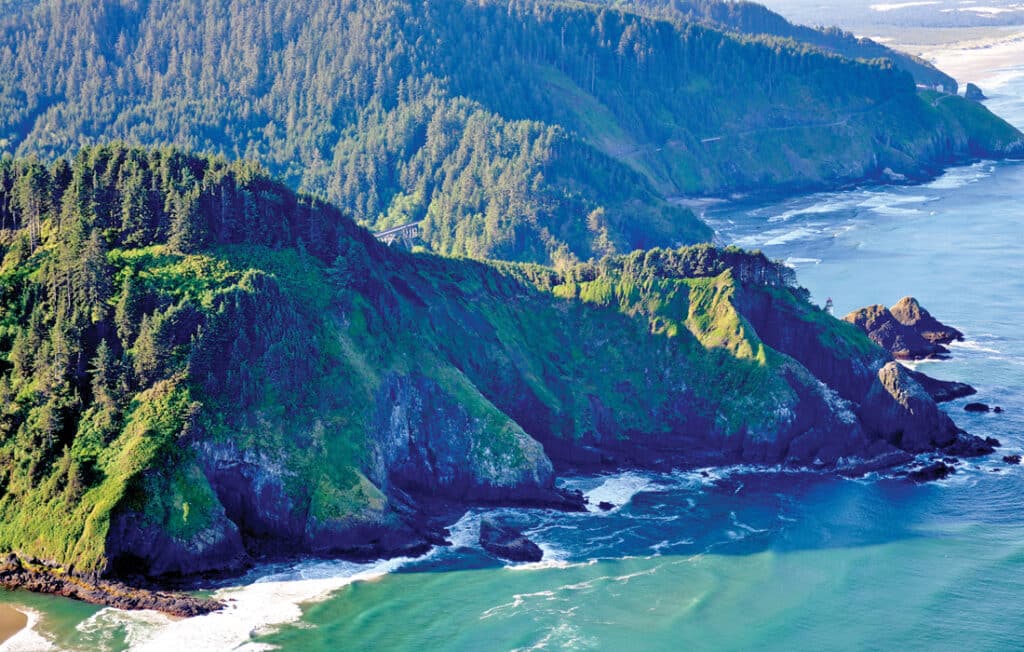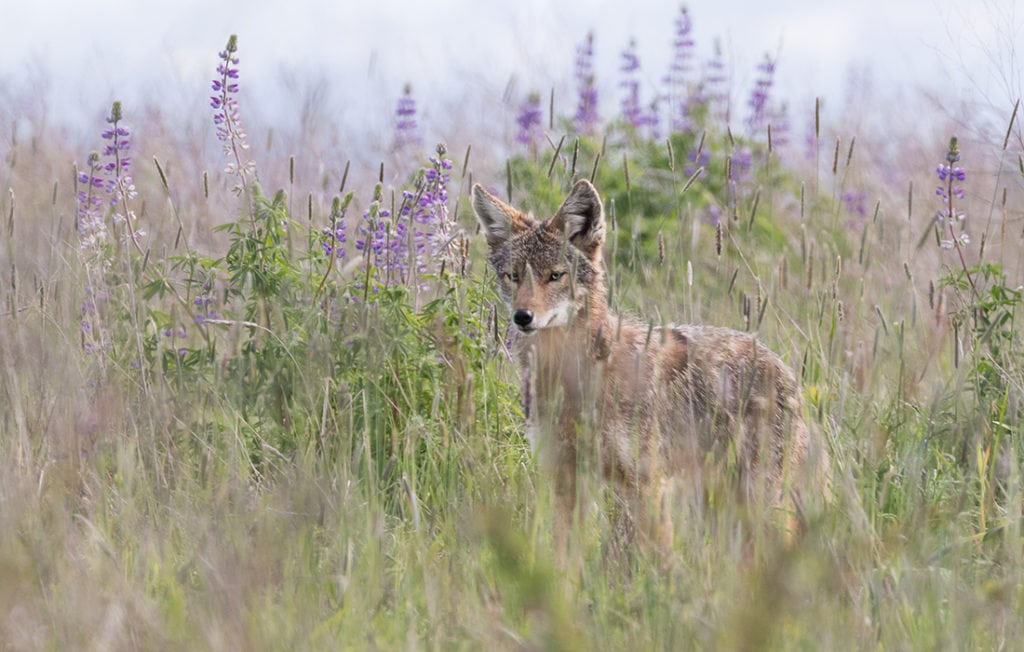
Kassandra Ford (@kassthefish): A PhD candidate at the University of Louisiana at Lafayette, hobby birder and fish researcher. Volunteer bird bander with Louisiana Bird Alliance of Oregon.
Armand Cann (devonian_one): Herpetologist and researcher on the endangered Blanding’s turtle. Recently defended his Masters Thesis in Biology at Loyola University in Chicago.
Nicole Jackson (nicky.j10): Environmental Educator and birder, particularly passionate about connecting underserved communities to nature. Studied Environmental Education and Interpretation in the School of Environment and Natural Resources at Ohio State University.
When you came together to start Black Birders Week, what were your goals?
Kassandra: It was definitely in response to the Christian Cooper incident in Central Park and our group’s discussion of how a lot of us have had incidents similar to that. Maybe not as extreme. Maybe just as extreme. I think our goal and shared vision was to showcase that Black people do enjoy the outdoors. We’re already out there but we also need to have some pretty serious conversations about how to make it safer for us. That there definitely are problems associated with us going outdoors and that shouldn’t be the case.
Armand: The biggest thing for me was just showing that this is/was a space that I and many others feel like they’ve been judged for being in and we shouldn’t. This is space we can absolutely be in and we enjoy it. And we hope instances like the Christian Cooper one in New York don’t detract anyone from joining in on this space and participating to their full capacity.
Nicole: I just felt this enormous amount of joy because it was something that was created without us having to ask permission. We just did it. And I just loved that. I feel like there are so many instances in these situations of making ourselves known as Black people to ask permission to show up as ourselves which I think is ridiculous. In this instance it was a way to just say, hey, this is something we’re really interested in and invested in and we want to celebrate other Black people within STEM and birdwatching.
What has changed for you since Black Birders Week began?
Armand: Prior to this experience, I’ll be honest and it’s unfortunate, there was one other Black ecologist in my life. A professor that I had many years ago. Other than that my contact with people like me has been few and far between. This opportunity and this level of visibility, seeing so many people like myself in this field that experience the same thing, I think that’s been very beneficial for myself and hopefully for many of my peers.
Nicole: My engagement online. I’m still trying to process that. But seeing the engagement alone on Twitter with people I don’t know but they are really interested in what I’m doing and want to know more is really exciting but also exhausting because I’m an introvert.
Kassandra: I would reiterate what both of you have said. I’ve definitely seen an increase in my own visibility in terms of followers and [online] engagement. But I’ve also found a lot bigger confidence in myself too. I’m not really afraid to shy away from some of these difficult conversations. I think before, I wouldn’t have those conversations unless they were absolutely needed. But I’ve become more aware of the benefits of having these kinds of conversations and been more willing to do it. With allies, with people I don’t agree with, and even just with friends that I have who I feel like we could both benefit from having a conversation about race.

A lot of white people in the birding community were shocked by what happened to Christian Cooper in Central Park. But it hasn’t been shocking for Black birders. Can you talk about that disconnect between the experiences of Black birders and the perceptions of white birders?
Kassandra: I think it can be very challenging for people to understand or even predict things that will happen if it hasn’t directly affected them in the past. So for most Black birders or Black people who enjoy being in the outdoors, we’ve probably had some sort of negative interaction at some point with either the public or the police. Or we’ve been close to someone who has had such an instance. Whereas I think there are a lot of white people who have never experienced something like that so it didn’t really sink in as something that could happen. When [Christian Cooper] got a major amount of publicity and honestly, white people actually saw there were consequences that they could suffer from an incident like this—she lost her job, she lost her reputation, she lost a lot from this one incident—I think it kind of opened their eyes a little bit to the fact that this is actually something that happens and they started to listen to Black voices a little bit more.
Nicole: I believe this happened right after the Ahmaud Arbery situation so I think that was still on people’s minds too. Just being able to go for a jog and run in your own neighborhood is a struggle. I remember seeing comments from people about the investigation and someone was questioning why he was jogging so far away from his home. Why is that even a question? We should be able to do these things freely without fear or without worry, without harassment. And those same things came to mind with Christian Cooper’s situation. I wasn’t surprised. I was just like, it’s happening again. It wasn’t even like ‘Oh my goodness, this is worse.’ It was just like groundhog day. When is it not going to happen? That’s when I’m going to be surprised. The fact that I have to wake up and think differently about doing a very basic activity as a Black woman is still beyond me.
Armand: To me, the reason why it goes unnoticed with most white people in the birding community is because they don’t realize how pervasive systemic racism actually is in this country. Unfortunately for us, we learn that from a very very early age. We know how pervasive racism is in this country so it’s not surprising that we would expect an instance like this in any facet of our lives, whether it’s being outdoors, or in the classroom or grocery shopping or taking your kids to school.
During Black Birders Week, participants talked a lot about often being the only Black person when birding, herping, or just being out in nature. What are some of the issues you have faced in the outdoors?
Armand: When these things happen, it’s super emotional. They don’t just mess you up for an hour or that day. These things have debilitating effects on you mentally and physically for days, weeks, months, sometimes years after the fact. I’ve had way too many shares of experiences when I’m out and about working. I’ve had police called to come and check and make sure that what I’m doing is legit or just see what I am doing out in my field sites. I’ve had police called on me for walking down my neighborhood. It’s not a one time thing. I still have nightmares of some of the incidents.
Kassandra: An example that I gave in the panel and I’ll probably continue to use: I was a teaching assistant for a [fishing] class. We were going to a location that was private property in Southern Louisiana and the professor just was gung ho about it and just wanted to head on out. When I realized that it was private property and also realized the demographic of our class which was probably about 50% Black students, I was like, hold on a second. We need to try to contact the property owner before we just randomly show up to this person’s land and expect to bring weird equipment, fishing stuff, with X number of Black students. That would be, in all honesty, putting their lives and my life in danger. The professor honestly had never even thought about that before. Sometimes people don’t even realize that is a potentially dangerous situation. But for me, I could immediately see a completely horrible end result if I didn’t take a step in and say hey, we need to take an alternate approach to this.

Nicole: Mine has to do with hiking. I was taking a trip with some friends and family to a state park in Ohio. It was an awesome experience in the beginning. We did our hike, we’re talking, and catching up. And then heading back to the parking lot, we passed a family, a White family. I think it was a dad, a grandpa, daughter, and son. We were walking and I was ahead of the rest of my family and friends. They caught up with me and asked if I heard what one of them had said. And she’s like, I said hi and we’re waving as we were passing by them and someone mumbled, “Make America great again.” I was really thrown off because in those instances, you can tell when things are racist but it’s coded language. It’s very subtle. You just want to be able to shrug it off but it sticks with you.
Kassandra: I think it’s important to note too that these incidences aren’t just isolated to the South either. I think that was honestly probably one of the most eye opening things for a lot of White people. It was in Central Park in New York. And so, this is happening everywhere.
Armand: It reminds me that people don’t think of the west coast as being racist at all. But when I was in South Central Oregon, what did I see? I saw plenty of Confederate flags. They weren’t even a state during the Civil War. It’s a systemic issue, not only in our country but globally.
What changes do you think need to be made for the birding community to be a safer and more inclusive place for Black birders?
Armand: Many of these Facebook birding groups were intentionally removing the posts about Black Birders Week, implying that it’s political. These aren’t political issues. It’s not a conservative issue or a liberal issue. It’s a human rights issue. Hopefully in the future those birding groups, if they are even still around in the coming months, are a lot more open to having these discussions because they need to be had.
Kassandra: I think a part of that is going to rely on our White allies to take up some of the work. We’re going to need help and that’s the thing that you can do. You can amplify our voices, things that we’ve already said or things that we are saying. If you have something meaningful to contribute, contribute as well, but most important is calling out the behavior when you see it. We can’t put this strain and the stress on our mental and emotional health to do it all. We’re going to need help and by you helping us or you amplifying us in our work, it’s not going to take away from the movement. It’s going to add to it.
Armand: We already talked about how many of us are sometimes the only Black person in social groups that we’re in and I can only imagine there are many many groups where there are no Black people. If something is said, it goes unaddressed because there is no one around to be insulted. And I think those should be equally important for White allies to engage their peers and talk about these things to prevent it from happening in the future.
Nicole: There are times when I don’t want to think about protests or racism or having to console a white person who is witnessing our oppression for the first time. We’re not robots. We’re human beings and our mental health is definitely important. The mental health aspect of it is just as important because it becomes too heavy of a burden for us. This is everyday for Black people. We don’t have time to grieve for our murdered brothers and sisters, cry, or even heal from past traumas. We are constantly worn down and I speak to that because I’m still trying to heal from childhood and generational trauma. Nature helped me to engage with my emotions and heal from my pain. That was my escape because I did have suicidal thoughts at one point in my life. In my mind, nature saved my life and there are more Black people going through something similar. It’s unfortunate to know that outdoor spaces that belong to us all feel unsafe because of what we look like. By talking about our experiences, we are still in a way putting ourselves at risk and in harm’s way. So who is going to fight for and speak up for us? We can’t do it all and we can’t do it alone.
In closing Kassandra left us with this takeaway.
Kassandra: I’ve personally seen some positive things come out of Black Birders Week. I’ve seen a lot of White allies come out of the woodwork and realize that they might have been silently supportive before but we need them to take a more active role in it. And there are a lot of them that are doing so. We’ve both seen a lot of engagement from the Black community of people posting. I think that this has been a fantastic example of the Black community coming together, led by us, Black naturalists or outdoor enthusiasts. Changing the narrative a little bit but also bringing about some important conversations. I think they are starting to happen.



